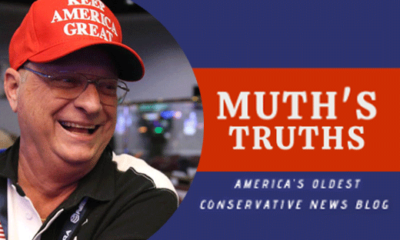(Michael Schaus) – Much like government entitlement programs, it seems there is nothing more permanent in this world than a newly-enacted tax.
However, soon, Nevada taxpayers might have an opportunity to create an exception to this rule.
The Commerce Tax — the state’s ill-advised tax on gross-receipts — might finally be brought before the voters. Currently, signatures are being gathered to get a question on the 2018 ballot that would let Nevadans vote directly on whether or not they want to keep the tax from the 2015 Legislative Session.
It won’t be the first time voters have had an opportunity to weigh in on state tax policy. In 2014 a similar gross receipts tax was proposed on the ballot, and well over 70 percent of Nevada voters rejected it.
Unfortunately, Republicans ignored the will of “we the people” in 2015 by enacting the tax anyway — slightly tweaking it and renaming it the Commerce Tax.
Republicans paid the price for their tone-deaf tax policy in the following election — but it remains on the books, costing Nevada businesses more than $140 million in the first year alone.
And that figure doesn’t even take into account the compliance costs — a burden shared by virtually every Nevada business owner, regardless of whether or not they actually owe state coffers a single dime.
This opportunity to roll it back is a godsend for small businesses, workers and consumers in the Silver State. In fact, other states have been doing just that for over half a century.
Gross receipt taxes first became “popular” during the Great Depression for one simple reason: Businesses had to pay up, regardless of whether or not they turned a profit.
In a time when companies were routinely posting negative gains, such a “benefit” was sold as a potential windfall for local coffers.
Of course, that “benefit” has pretty obvious drawbacks. It didn’t take long for struggling businesses to begin moving out of state, laying off workers or closing up shop. By the mid-20th century, it became obvious, even to tax-happy politicians, that such plundering of the private sector did, in fact, have serious consequences.
And so the repeals began. By 2002, all but one state — Washington — had scrapped their versions of gross receipt taxes.
Just over a decade later, however, the taxes began to make a comeback as politicians ignored the proven risk of economic destruction that such schemes inflict.
Worst among the side effects of such taxes, is the fact that it disproportionately burdens small and growing mid-sized businesses. In fact, the very structure of the Commerce Tax — applying only to businesses with more than $4 million in annual receipts — is an implicit acknowledgement of such a fact.
Now, $4 million might seem like a big business so some, but it truly depends on the industry. For some ventures, $4 million in gross receipts might be nothing more than a garage-based business.
Lawmakers attempted to address this variance among industries by adopting a staggering 26 different rates corresponding to different sectors of the economy.
This, however, leads to its own problems.
Dominant industries will seek to ensconce their near-monopoly status in the state’s economy by lobbying for higher rates on industries that threaten to steal some of their political clouts — effectively making economic diversification a pipedream for the Silver State.
Even within industries, similar games will be played. Large and established corporations nearly always have higher profit margins than small and mid-sized start-ups — leaving large businesses free to lobby their emerging competitors out of business with higher and more burdensome rates.
For a growing business that is approaching the arbitrary $4 million benchmark, the threat of yet another tax is already hanging over its head like the sword of Damocles. The potential for even higher rates will simply encourage new ventures to self-impose a cap on their potential growth.
And for the businesses deemed “big enough” to earn a tax bill, the price isn’t merely paid in dollars and cents. The additional cost means fewer employees, less generous healthcare packages and higher prices passed on to the consumer.
For all these reasons, and more, the opportunity to remove this scar on Nevada’s business climate should be celebrated. Gross receipts taxes are little more than a gift to lobbyists and government officials that are anxious to plunder private enterprise for their own gains.
Taxpayers knew that in 2014. Let’s hope they remember it in 2018.
This publication originally appeared in Nevada Business Journal. Michael Schaus is communications director at the Nevada Policy Research Institute.







Facebook
Twitter
Pinterest
RSS